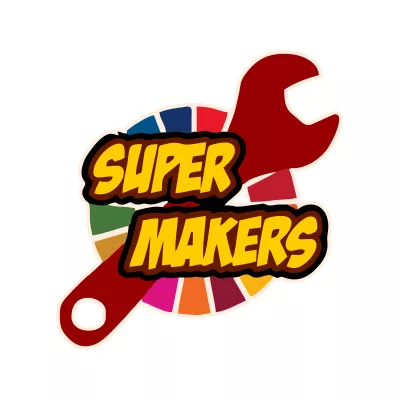General information
RDP Priority
- P6. Social inclusion and local development
RDP Focus Area
- 6B: Local development
RDP Measure
- M19: LEADER/CLLD
Summary
The Local Action Groups (LAGs) Association for Comprehensive Rural Development of the Sierras de Salamanca (ADRISS) in Castile and León, and Tierra Estella (TEDER) in Navarra selected six municipalities to set up Maker Labs (‘makerspaces’), where groups of young people would receive training in order to build their entrepreneurial skills through technology. The activities implemented in the Maker Labs aimed to help beneficiaries identify the needs faced by their local communities and to design new products and services that could address those needs and help the environment.
Results
About 90 young people participated in the different Maker Labs within the two territories and designed new products/services to benefit their communities and the environment.
One of the direct drivers and benefits of the SuperMakers project was the enthusiasm and commitment of the mayors of the municipalities concerned to make use of the solutions that were designed and prototyped by the young people during the project.

Promoter
TEDER LAG (lead partner) & ADRISS LAG
Funding
Total budget 48 269.73 (EUR)
EAFRD 33 185.79 (EUR)
National/Regional 14 359.75 (EUR)
Other 724.19 (EUR)
Sujets
Ressources
Documents
Context
Rural areas have been lagging behind urban areas for many years in providing young people with spaces and tools to innovate, develop their ideas and pursue entrepreneurial opportunities. Today, this paradigm has shifted, and rural areas are undergoing a profound transformation. New digital tools allow young people to connect with others across the globe to discuss shared challenges and look for solutions for their area without leaving it.
The Local Action Groups (LAGs) Association for Comprehensive Rural Development of the Sierras de Salamanca (ADRISS) in Castile and León, and Tierra Estella (TEDER) in Navarra, worked together to identify the needs of their young populations. On that basis, they then set out a range of actions to help local young people appreciate their territory, culture and values; to facilitate access to healthy leisure and employment; and to provide training, adapted to the needs of the commercial, industrial and service sectors in their territories.
Inspired by the "Maker Culture" - in which new technology, Do-It-Yourself (DIY), engineering and craft production combine to promote a culture of creative reuse and innovation - the LAGs also set out to create open spaces where young people can use their creativity and technology to invent, design and manufacture solutions to local problems.
Objectives
This project aimed to foster the spirit of innovation and cooperation among young people while developing their digital skills.
Activities
The ADRISS and TEDER LAGs selected six municipalities to set up Maker Labs (‘makerspaces’), where groups of young people would receive training in order to build their entrepreneurial skills through technology. Two of the Maker Labs were set up in the territory of the ADRISS LAG and four in the TEDER LAG’s territory.
The two LAGs designed an attractive visual identity for the project and produced publicity brochures and posters. Information sessions were held at schools in the six municipalities to publicise the project and attract participants.
Each municipality provided a venue for their makerspaces, complete with the necessary equipment, furniture and internet connection. In order to be converted to Maker Labs, each space was equipped with virtual reality glasses, a 3D printer, a trunk of Lego-type pieces, a video camera, a laptop, a Lego robotics kit and an Arduino starter kit. The Arduino kit is used to teach students the basics about electricity, digital logic and programming. A web platform was set up to function as a virtual network for exchanging ideas and solutions between the different Maker Labs.
A total of 12 sessions were held at each Maker Lab, divided into three phases. The first phase focused on the identification of needs (within the local community) and familiarisation with the available tools. The second phase then involved the formation of work teams and the design and prototyping of models. The third phase focused on the validation of the models created.
Finally, a virtual event was organised as a services/products fair to exhibit the developed ideas and prototypes. The project organisers invited representatives from the local authorities and institutions, personnel from the chamber of commerce and business associations in the area, as well as educational representatives and social entities.
Main results
About 90 young people participated in the two territories’ different Maker Labs and designed new products/services to benefit their communities and the environment.
One of the direct drivers and benefits of the SuperMakers project was the enthusiasm and commitment of the mayors of the municipalities concerned to make use of the solutions that were designed and prototyped by the young people during the project.
Overall, the project helped young people from different territories to better understand the problems faced by their communities and how they could work together to find creative ways to address and improve those issues.
Key lessons
It is important to provide young people in rural areas with access to new technologies so they can learn how to use them to solve local problems. This is a way to both stimulate their creativity and inventiveness and to encourage them to be more involved in their communities.
